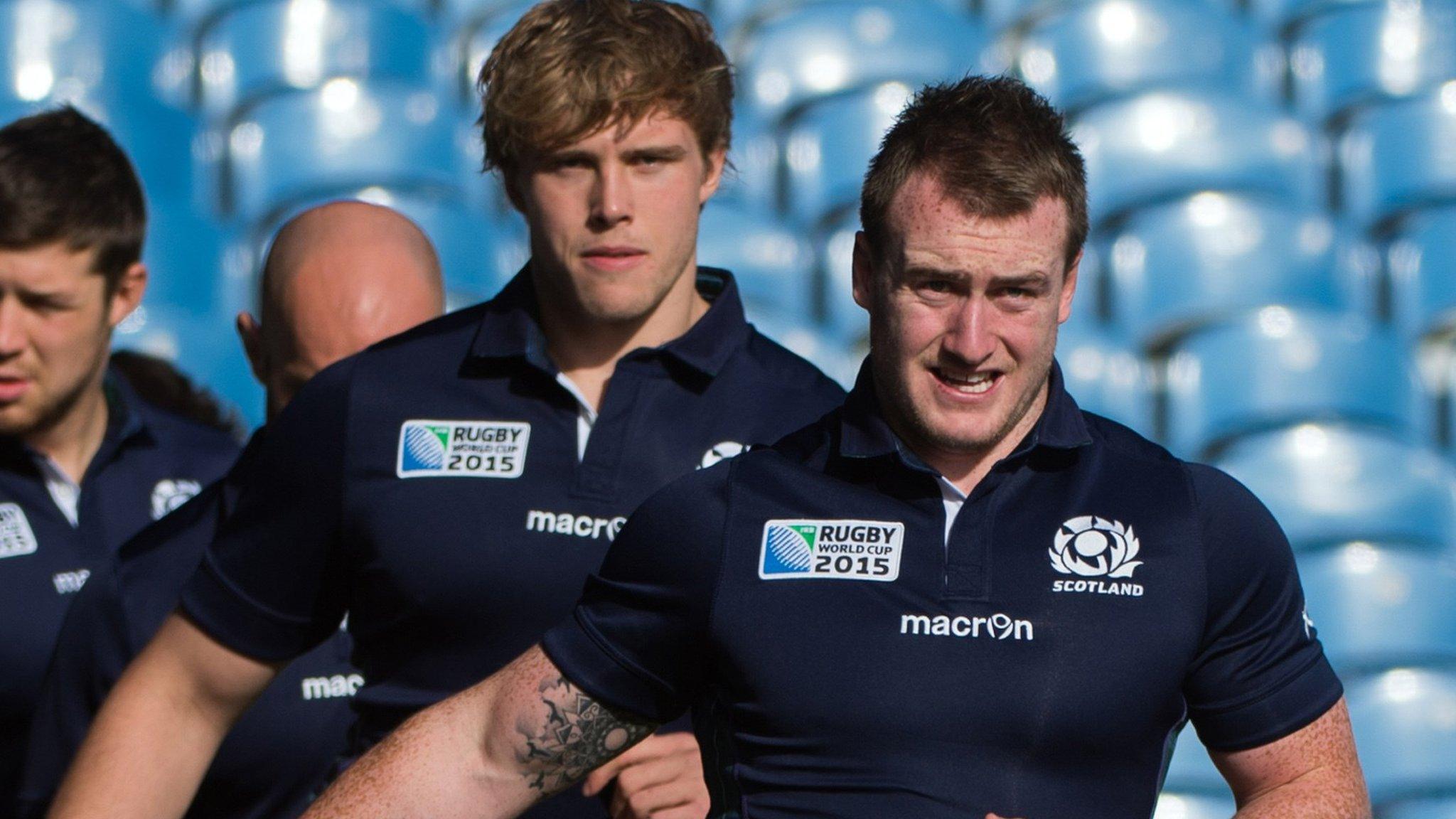British and Irish Lions make history by beating New Zealand - can they make more?
- Published
- comments
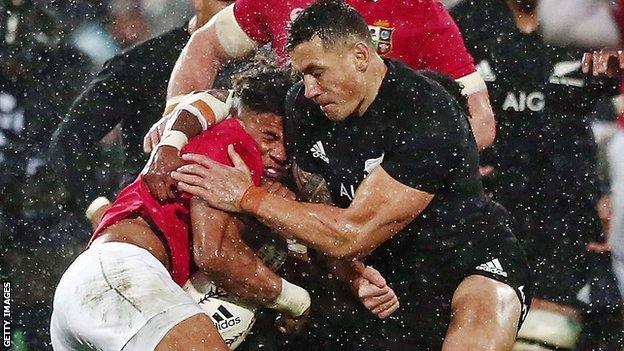
Sonny Bill Williams was sent off in the 25th minute for a shoulder charge on Anthony Watson
The match that saved the Lions. Just.
This 24-21 victory over the All Blacks was far from flawless. It was defined by errors as much audacity, by tension more than relentless brilliance. It may also prove critical long after this series has been decided and whichever way next Saturday's decider goes.
No-one who saw the red sea and heard its roar in Wellington could doubt the support the British and Irish Lions bring. It is back home where the dissenting voices have been building, from club owners angered by the damage done to their prime playing assets, by player representatives concerned at the relentless attrition of the modern rugby calendar.
To win a Test here, for only the second time in 40 years, against a side that had not lost at home since 2009 or on this ground since 2003, and had not been held tryless on their own soil for 15 years, both makes history and buttresses the future.
A night for records, a nightmare for Sonny Bill Williams. In a contest decided by the narrowest of margins, the red card received by the heavyweight centre midway through the first half was the most significant of all.
It was the first time an All Black had been sent off in 50 years, the first time it had ever happened at home. This says less about the morality of the men in black and more about the effect of an aura and the reluctance of referees to break it.
The last man to go was the legendary Colin Meads, a man who can be grateful there were no television match officials in the black and white days. Former Pakistan cricket captain Javed Miandad was given out lbw in Karachi as often as All Blacks enforcers were sent packing for their dark arts transgressions, which made both Williams the most stupid man on the field, and referee Jerome Garces the bravest.
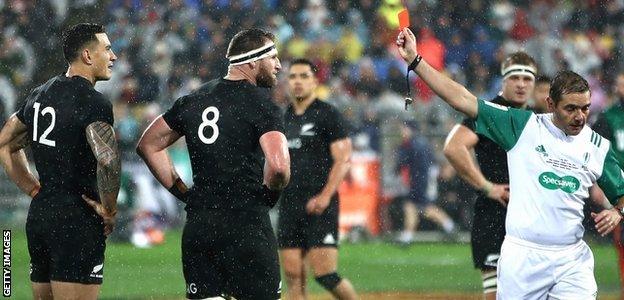
Referee Jerome Garces had no hesitation in making Sonny Bill Williams the first All Black to be sent off in a Test since 1967
Williams can have no complaints. He might try to argue that his team-mate Waisake Naholo was blocking his right arm as he came to tackle Lions wing Anthony Watson, but far clearer was the intent and aim: leading with the shoulder, crashing straight into Watson's unprotected face.
Garces spotted it straight away. He checked with his TMO, and then held off the suggestions of his touch judges that he might want to give it further thought.
Sixty five minutes to play against 14 men. The Lions looked at this golden ticket and almost fell over themselves trying to cash it in.
Maybe the Sonny delight went to their heads. Having gone to the interval at 9-9, they then stumbled into the worst quarter of rugby a Lions Test team have produced since their humiliation here 12 years ago.
Penalty followed penalty. The All Blacks looked at the odds, stuck the ball under some big arms and kicked short and long - 77% possession, 89% of the game in the Lions' half during this period.
Had Beauden Barrett not missed three kickable penalties they would have been out of sight. Mako Vunipola was sin-binned for a late charge on the fly-half, Conor Murray penalised for a high tackle. Panic spread when percentage play was required.
If it sounds harsh to criticise Barrett, a man who landed 21 points with his boot and did much that was assured with ball in hand, it is also fair to say that the current world player of the year sometimes has feet of clay.
His errors helped the numbers slowly turn the Lions' way, fresh legs from the bench denting weary ones in the opposition defence. Talupe Faletau made roadkill of Israel Dagg in the left corner, Murray stepped and sniped down the right after Jamie George's bulldozer break.
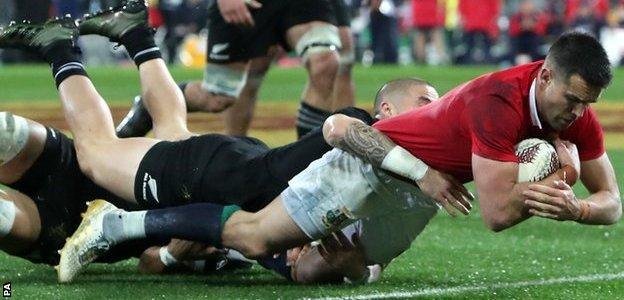
Conor Murray's excellent finish helped the Lions level at 21-21 and set up a nail-biting final 10 minutes
With 10 minutes left, the two sides locked together at 21-21 and the anxiety making wrecks of strong men, your mind went back to the second Test against South Africa in 2009.
That day the Lions' Ronan O'Gara had been the unfortunate one to crack with the game tied down the stretch, taking out Fourie du Preez in the air to set up Morne Steyn's late winning kick. It is a penalty that haunts Lions supporters to this day.
This time it was New Zealand's Charlie Faumuina who did the same to Lions replacement prop Kyle Sinckler. If the decision was less clear-cut - did Sinckler jump into the tackle? Was Faumuina already committed? - Owen Farrell's penalty was just as decisive.
The red-shirted hordes in Wellington will celebrate deep into the night and on to the morning after. Imperfect this performance may have been - they had just 38% of possession over the 80 minutes and 41% of the territory - but there was also excellence in abundance: a parity at the breakdown after last week's rout, a relentlessness in first-up defence, a kicking game that had both more variety and a better end result.
Only a series win will do - Sam Warburton
Lions coach Warren Gatland had been portrayed in the build-up by one newspaper in his native New Zealand as a clown. On Saturday his big decisions made a serious difference.
Maro Itoje, brought into the starting line-up, played with the energy of eager youth and the effectiveness of a dead-eyed veteran. Courtney Lawes, brought on to the bench, helped tip the power balance in the seismic final quarter. Sam Warburton slowed up New Zealand ball and protected the Lions' own supply; the Farrell/Sexton combination fired in attack even as it occasionally creaked in defence towards the death.
There is more history up ahead. Only once in 11 attempts have the Lions won a series in New Zealand; not once in 23 years have the All Blacks lost at Eden Park, where the series will be settled in a week's time.
With Steve Hansen's men back to full complement, with the Lions battered from a punishing schedule, with revenge in the Auckland air, it should only go one way. The bookmakers have the home side at 1-4, the tourists at 4-1.
And yet. The Lions are scoring more tries, they have the superior goal-kicker and they have another French referee on the whistle. Players win matches, but officials dictate the tone.
On Saturday, Gatland's warriors made some history. Now to make much more.
- Published1 July 2017
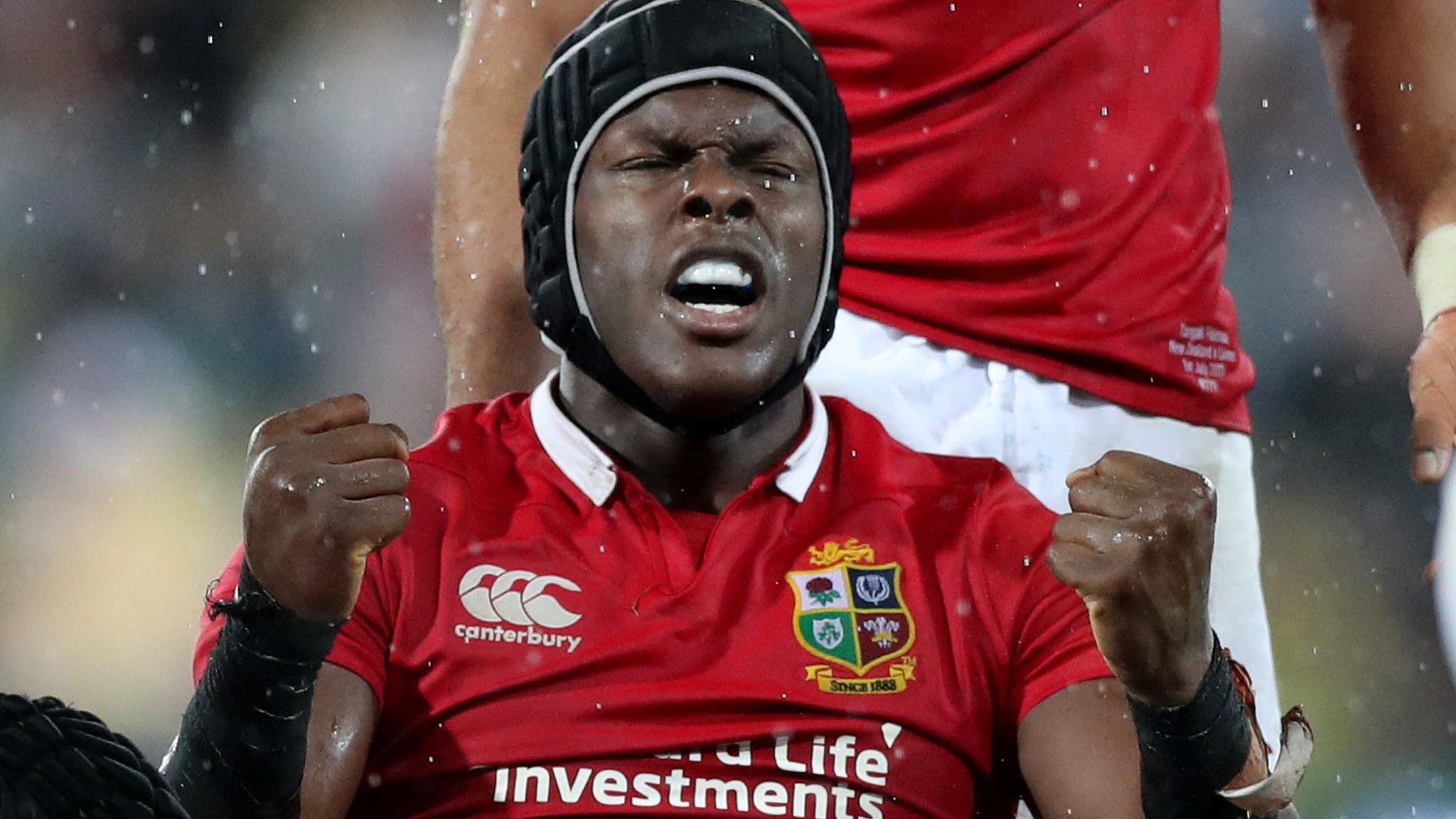
- Published1 July 2017

- Published25 June 2017
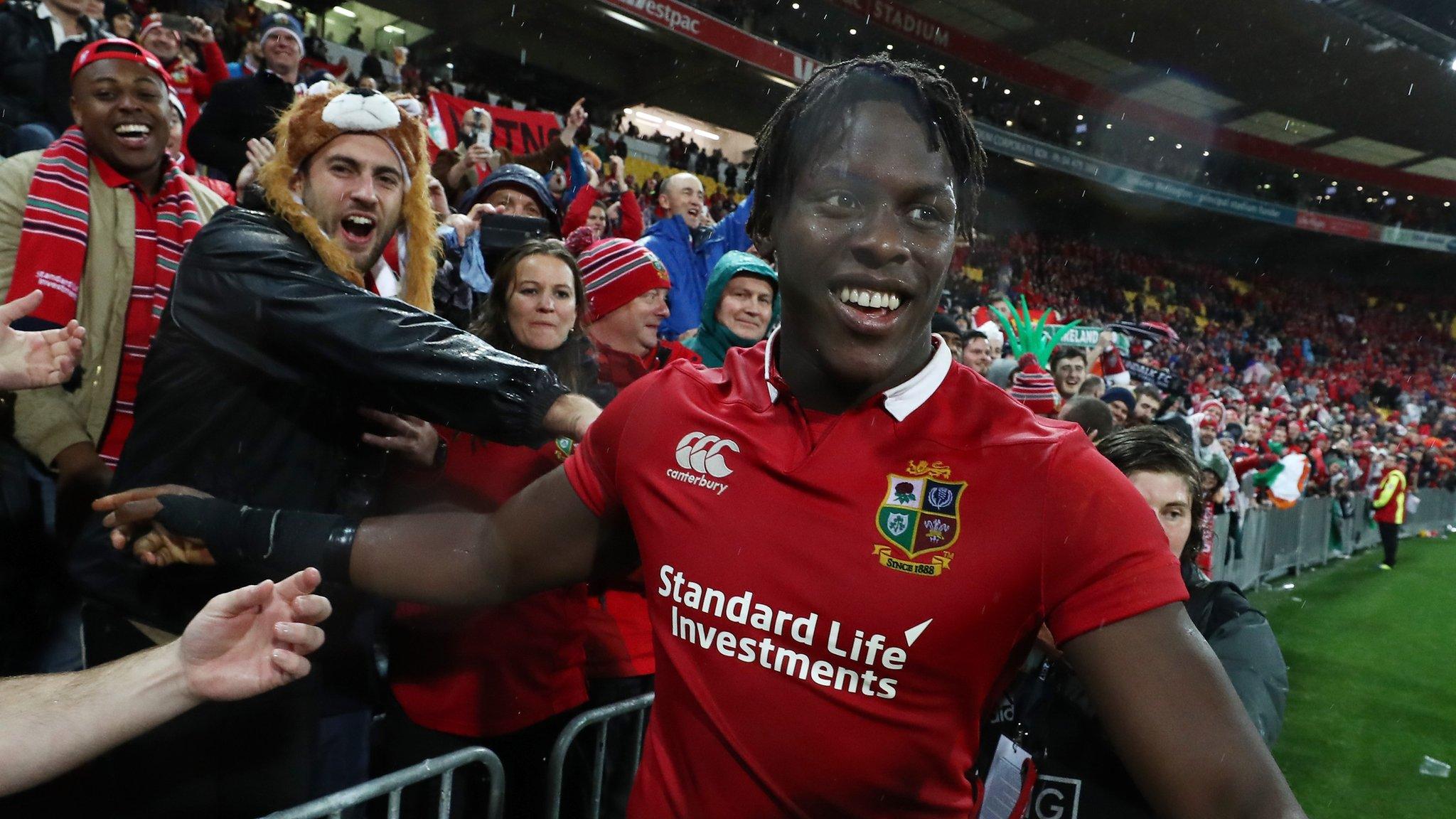
- Published1 July 2017
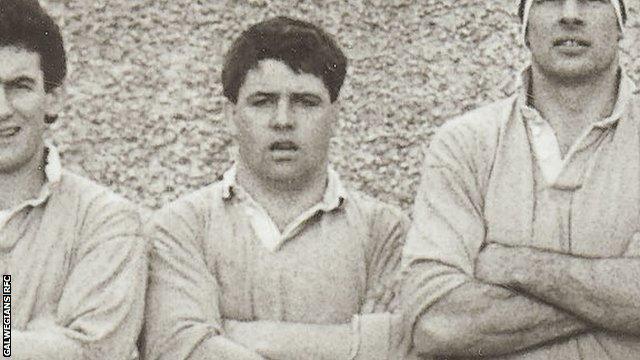
- Published30 June 2017
